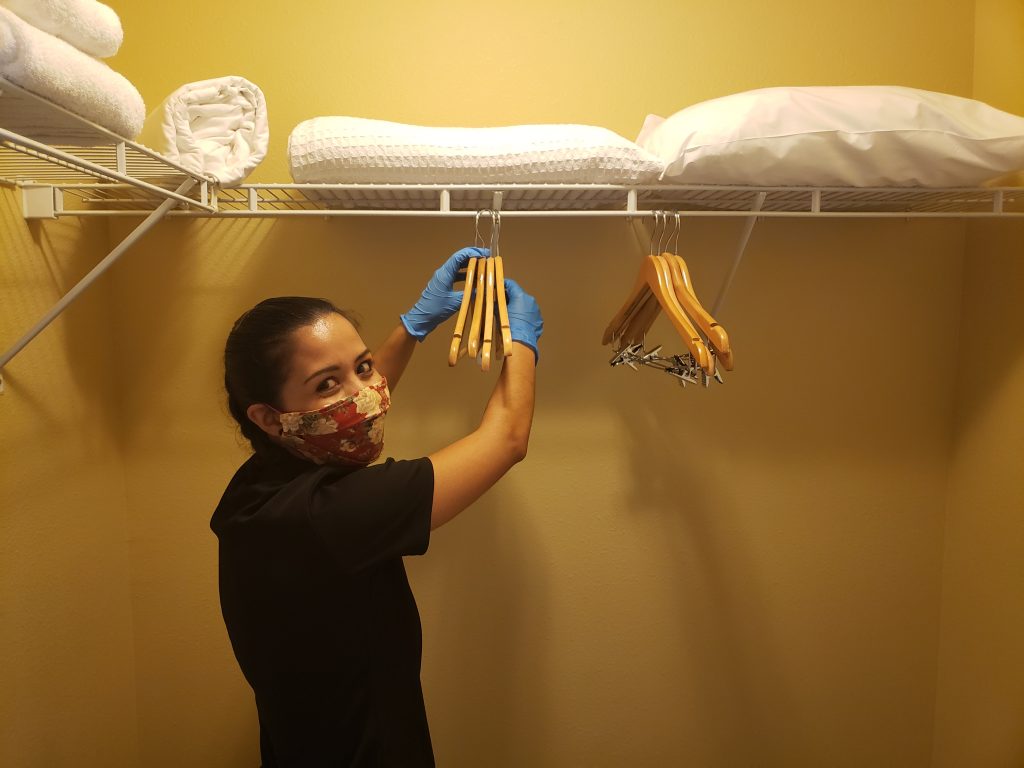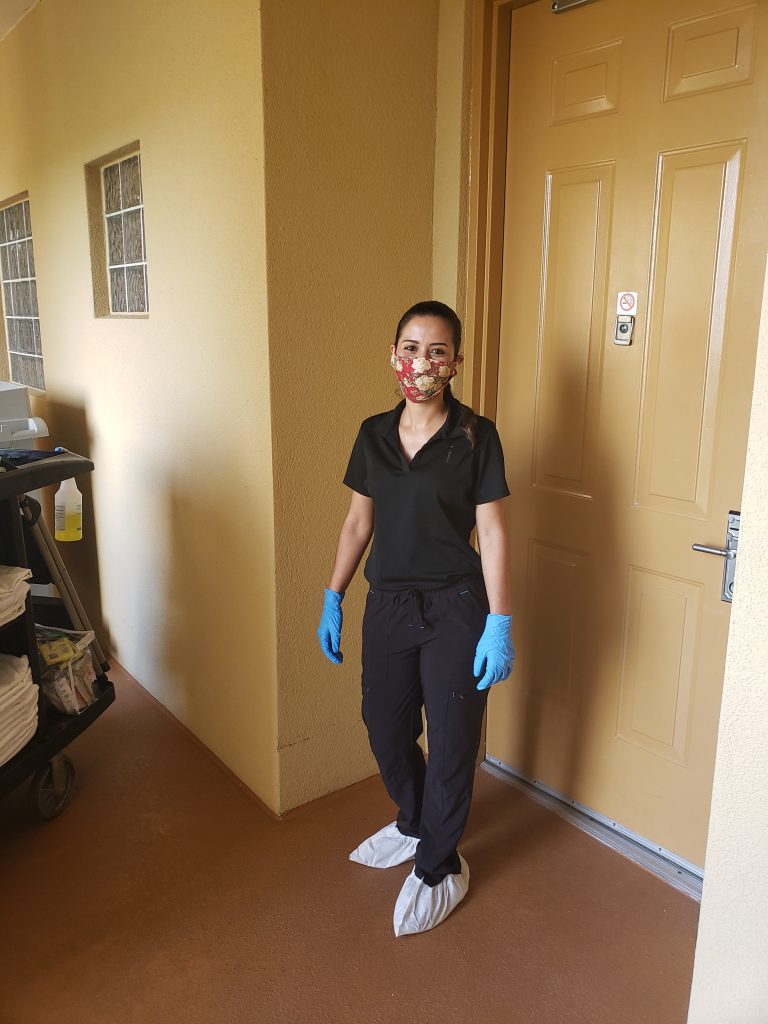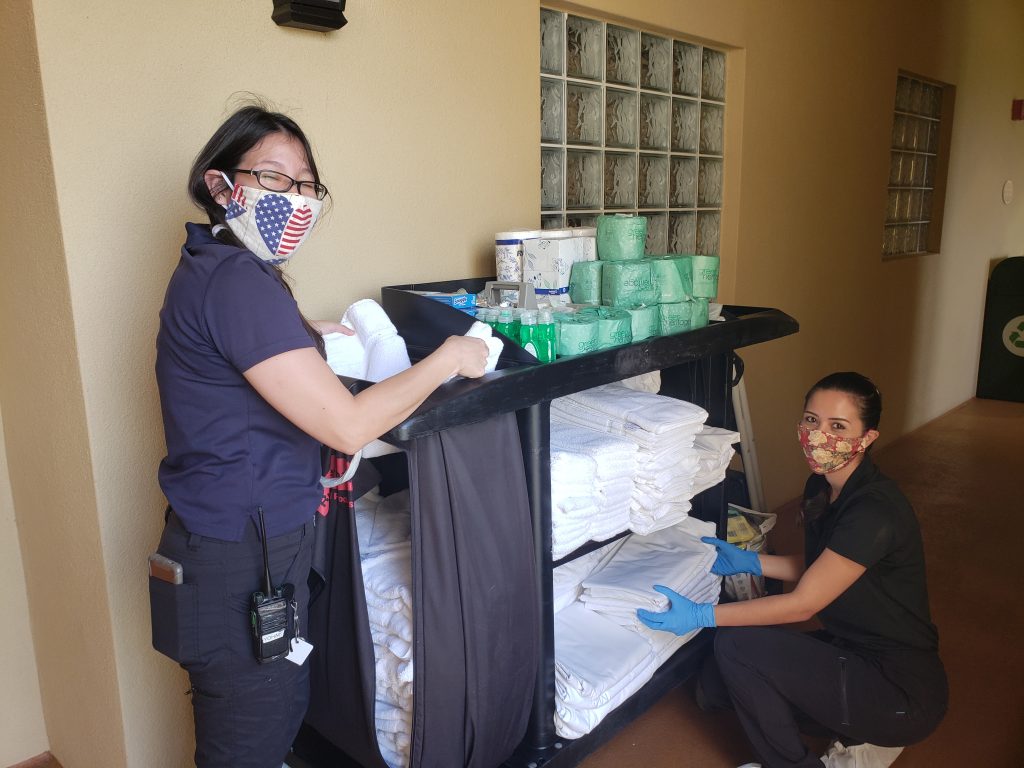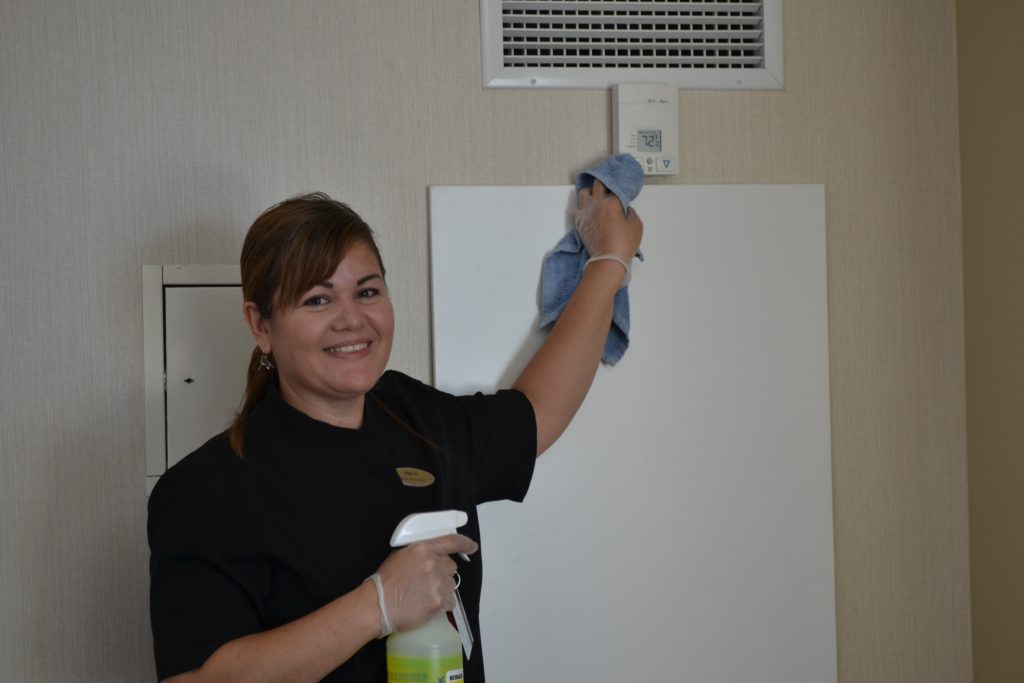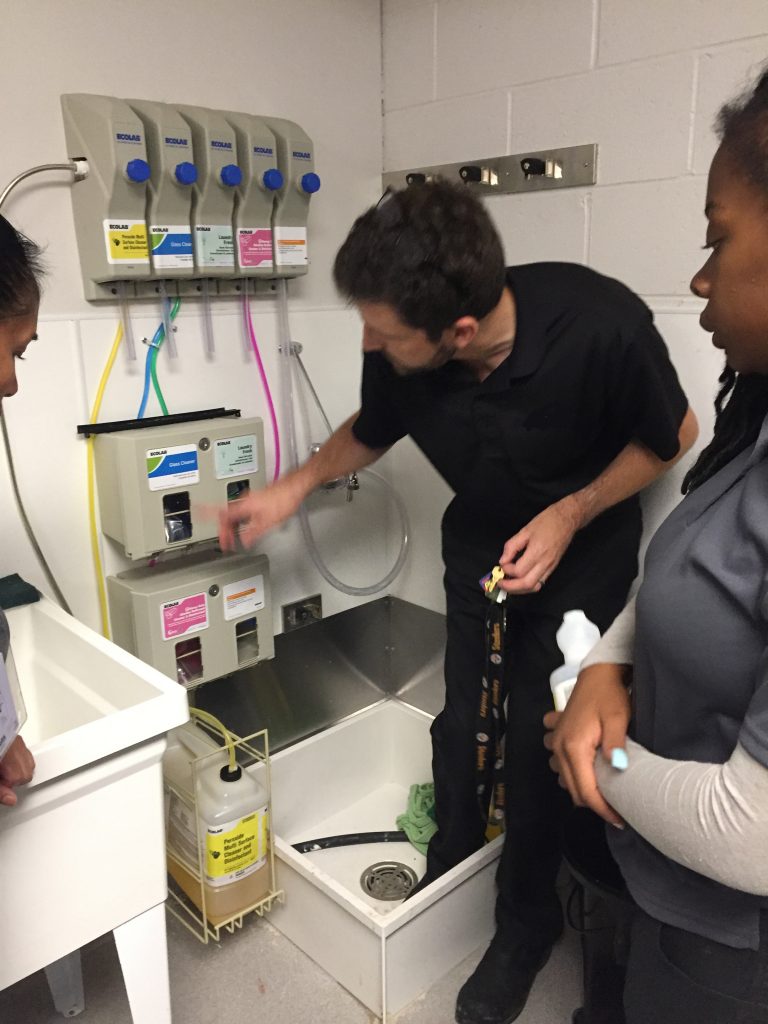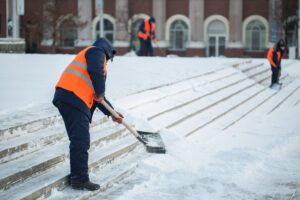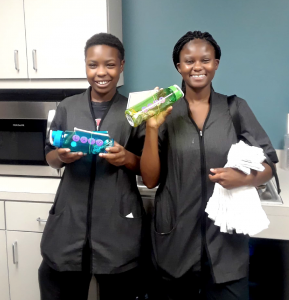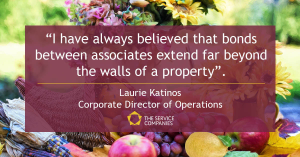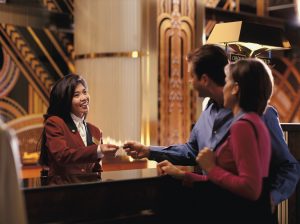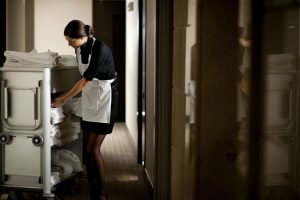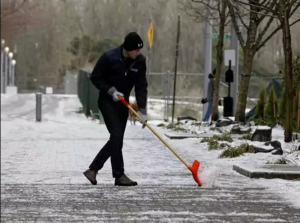We are thrilled to hear reports of many clients and industry friends opening their doors again. While safety is of critical importance when returning to work post pandemic, as a company we have created a mandatory virtual reactivation and orientation for all associates returning to work. This covers many safety protocols as outlined by the CDC and refresher training for PPE and chemical usage. In addition to safety training there is an essential need for refreshing service standards when it comes to customer and employee interactions.
Many standards that have been ingrained and consistently practiced throughout the hospitality industry over the years look different today. For example, having meaningful interactions while remaining distant, expressing an emotional connection from behind a face covering and the hospitality zone known as “10 & 5” moving to “10 & 6”.
Since our return to the workplace, we found some helpful tips for managers and team members to adjust to necessary changes and navigate comfortably within our crowded facilities.
- Keep Smiling! Yes we can still read facial expressions while under that mask. This has been a fun ice breaker for the team.
- Associates along with some customers are trying to get used to adjustments for basic interactions, like escorting a guest to a specific location. Even while wearing a face covering we still must provide others appropriate physical space and always keeping our face covering intact, so speak more loudly and clearly while maintaining a safe distance.
- Same as before, eye contact and a nod is important to let a guest or coworker know you are listening intently and understand their message.
- Something as simple as delivering a guest request could feel quite awkward with new safety measures. While some properties have procedures in place to deliver as far as the door, others may require attendants to enter a guest room. Whatever the standard, ensure your employees are comfortable and have opportunities to practice each process.
- As many in the industry are navigating through this new normal it is important to take a regular pulse on how our employees are doing and feeling. Be sure they know how to escalate a request where they may not fully understand. When in doubt have a manager or office staff follow up to ensure your employees and customers have resources along the way.
It is obvious that nonverbal communication is more important now than ever. Continue to role-play scenarios during your daily briefings. The ultimate goal is having an empowered team, well-versed and comfortable engaging with one another, always creating a warm and hospitable environment.
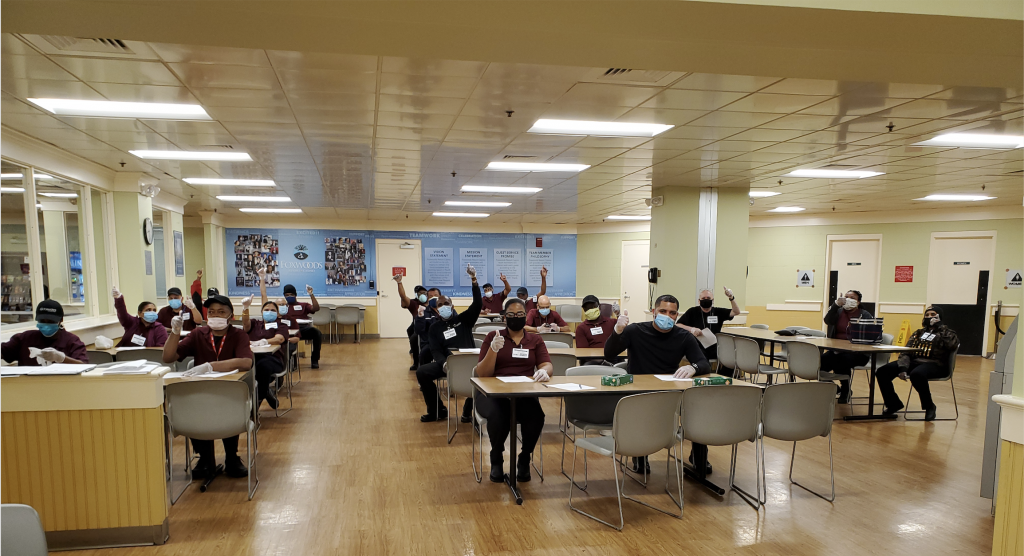
We would love to hear how you have changed service standards within your properties and facilities. Share your thoughts in the comments section!
Laurie Katinos is one of the leading hospitality operations directors. Her expertise in housekeeping operations spans over 20 years, with the majority of her time spent with Hyatt Hotels Corporation and The Service Companies. Her knowledge and operations savvy has contributed to The Service Companies becoming the unrivaled provider of cleaning, staffing and managed services in the hospitality industry.

